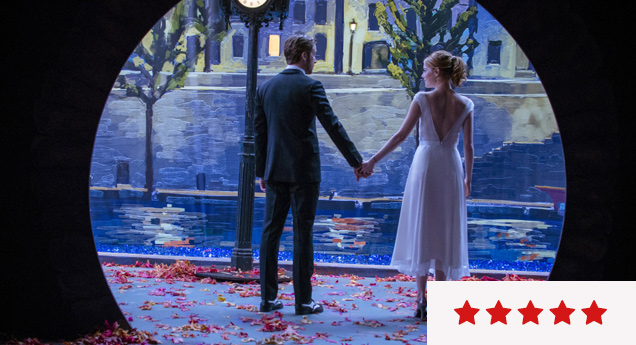Review: ‘La La Land’ is a Delirious Ode to Romance in All Its Meanings

About halfway through Damien Chazelle’s quietly transcendent La La Land, aspiring actress Mia (Emma Stone) is reassuring a mildly dejected Sebastian (Ryan Gosling) about his unlikely dream of opening a jazz club in a world that doesn’t care about jazz. The reason the club will be a success, asserts Mia, is because Sebastian himself is so passionate about jazz, and people enjoy responding to that kind of passion.
It’s a pretty fair statement of intent for La La Land (substituting musicals for jazz), but it’s not just Chazelle’s highly evident passion for the form that makes the film so wonderful – he calmly takes the hand of his musical-phobic audience and walks them ever so gently into his woozily poetic vision, eventually enveloping them in a delirious ode to romance in all its meanings.
The film hits multiple aesthetic highs in a variety of classically cinematic Los Angeles locations, but Chazelle’s masterstroke was presenting the whole affair in such a grounded milieu – there’s a tangible familiarity to this world that makes it all the more accessible. And impactful. Rarely has a musical felt so…real.
It’s always exciting when a filmmaker uses any power they have accrued to mount an unlikely passion project, and La La Land‘s status as the film Chazelle got to make thanks to the success of Whiplash only enhances its hopeful pleasures.
Ryan Gosling hasn’t been this well-lit since Drive, and his contemporary-meets-classic presence is perfectly matched by Emma Stone’s subtly-hesitant vulnerability.
Simply impossible to resist, La La Land is both a loving throwback and a bold step forward for Hollywood musicals. Its optimism is tempered by reality, but never at the expense of the film’s butterfly-inducing romanticism. This movie is why movies exist.
















